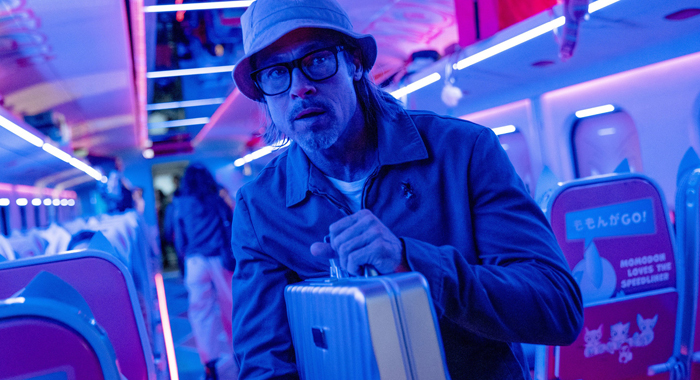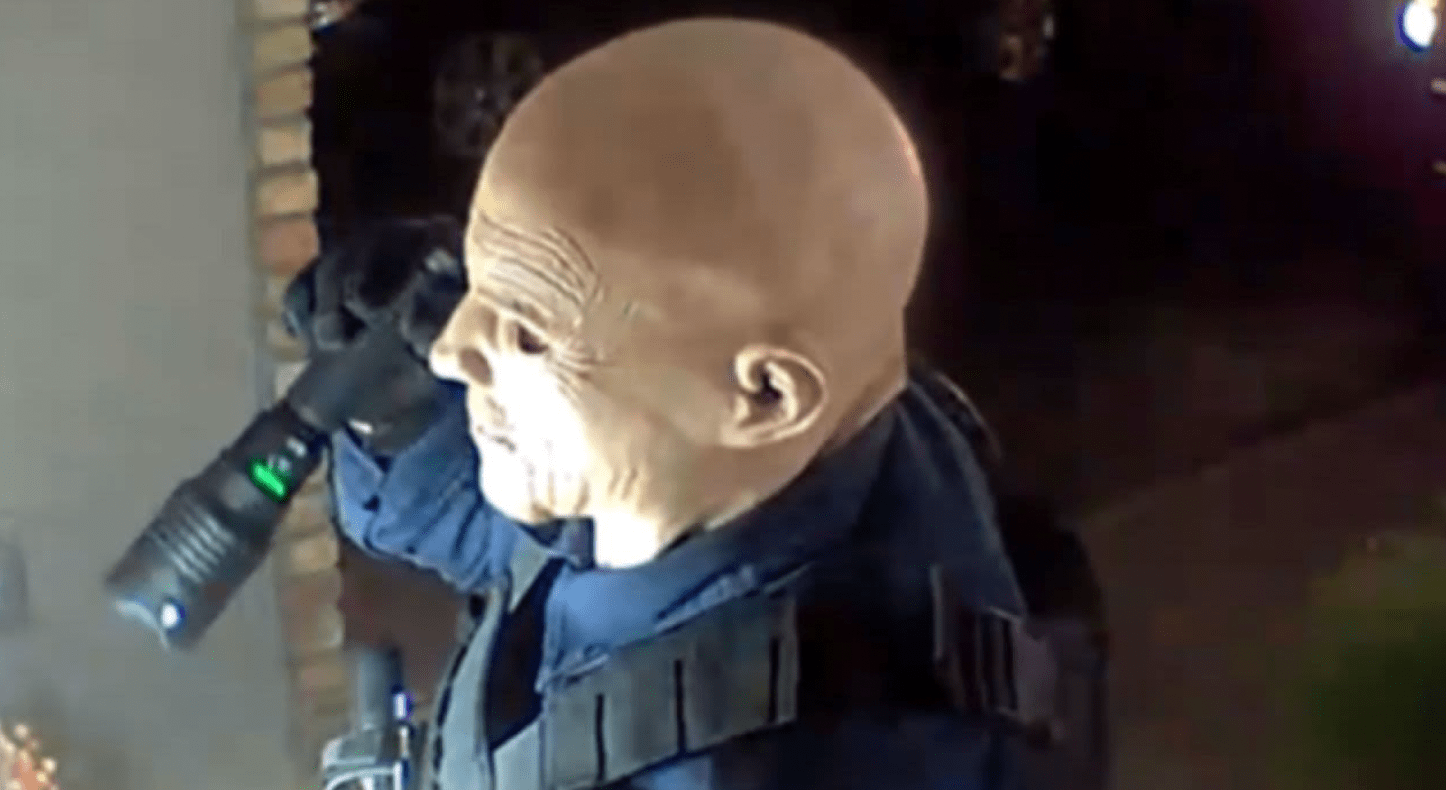In these dark times, when corporate micromanagement has strangled nearly all idiosyncratic creative energy out of Hollywood movies, we should celebrate any individual vision that makes it undiluted to the screen. Even David Leitch’s, I guess.
If the Deadpool 2 auteur compromised any element of his vision in realizing the alternately energizing and wearying quip ‘n’ shoot action-comedy Bullet Train, you’d never guess it. From Zak Olkewicz’s banter-clogged script (based on the novel by Kôtarô Isaka) to the gorily ingenious fight choreography, this is the movie the former stuntman wants to go see with his buddies on a Friday night. Too bad he’s got an idea of style rather than a sense of it, and you could say the same about his humor. I can’t speak too ill of the man whose production company has spearheaded the John Wick series, but I will say he’s limited to a co-directing credit on just one film in that trilogy. And I’ll add that if he understood camerawork as well as he does stunt work, the set pieces here might pop just enough to overcome the movie’s shortcomings anyway.
At the center of it all is Brad Pitt, anxiously foraying further into his weathered comic himbo phase, as a bagman dubbed “Ladybug” by his unseen handler (Sandra Bullock in ASMR mode) and convinced that he’s beset with bad luck. (The casting’s a nice little role switcheroo: Leitch has served as Pitt’s stunt double three times.) Ladybug is dispatched onto a Tokyo-to-Kyoto high speed train with a simple mission: to snatch a briefcase and step off at the first of the several one-minute stops the train makes before it reaches its destination. He finds the case. He doesn’t leave the train.
Preventing him are a gaggle of warring assassins who gradually become aware of each other’s presence. Chief among these is a British duo calling themselves “Tangerine” (Aaron Taylor-Johnson) and “Lemon,” (Brian Tyree Henry), code names whose relevance they discuss at never quite funny enough length, unless cockney accents are an automatic giggle for you. They’re transporting the adult son of a dreaded, masked Russian kingpin called the Black Death (Michael Shannon) back home, along with the suitcase Ladybug’s been sent for.
The most villainous of the lot is a manipulative pink-clad cutie named Prince (Joey King), whose agenda is revealed as the movie progresses. And to add gravitas, there are the noble Japanese killers: Yuichi Kimura (Andrew Koji), who’s come on the train to find out who pushed his son off a roof, and his father, the Elder (Hiroyuki Sanada), with a backstory of his own. A few smaller turns work to varying degrees. Best: a super-fly Latin killer out to avenge his family, played by reggaeton superstar Bad Bunny. Saddest: Channing Tatum, making the most of a one-gay-joke bit part.
That’s a lot of balls to juggle, and the film is a frustrating struggle between the entertaining process of keeping them up in the air and the drag of Leitch’s self-satisfied glib irony. (Scribbled in my notebook: “Stop trying to make me not like your movie.”) There are plenty of gory kills that hold their own, and there’s Brad Fucking Pitt, maybe our greatest current leading-man-as-character-actor. But there are also egregious scripted tics like Lemon’s obsession with Thomas the Tank Engine, a schematic for understanding the range of human behavior he brings up in nearly every scene. Imagine if Jules and Vincent had kept talking about French McDonaldses for the entirety of Pulp Fiction.
And if Bullet Train recalls any film tradition, it’s the Tarantino-for-dummies era of the late ’90s, when colorful hitmen quipped lazily about pop culture ephemera across disjointed narratives before plunging into bloody grotesquerie. (“Things to Do in Denver If You’re Dead ass script,” I wrote, maybe a little unfairly, in my notes, almost certainly during another Thomas-related exchange.) It’s a period no one much enjoyed at the time, I should add, and is not ripe for reclamation, ironic or otherwise. And a bit like scoring a series of comically violent hits to Englebert Humperdink’s “I’m Forever Blowing Bubbles” wouldn’t have gone over even back when people cared about Guy Ritchie movies.
Worse than the flaws though are the missed opportunities, small and large, strewn through Bullet Train. For instance, Pitt is introduced walking through Tokyo to the tune of a Japanese rendition of “Stayin’ Alive,” wearing a dorky bucket hat and chonky glasses. Why not work a more explicit Travolta homage in there just for a laugh? But the biggest and most frustrating lapse is the film’s waste of Joey King, next-gen action heroine. Anyone who saw her whip ass in The Princess, Le-Van Kiet’s barely plotted but winningly violent medieval feminist martial arts romp on Hulu, must have, like me, been eager to see her finally, inevitably unleashed on the men. Instead she’s a loaded gun that never fires. Seems like nobody even makes movies like me and Chekhov want them to.
Bullet Train opens in local theaters this weekend.






